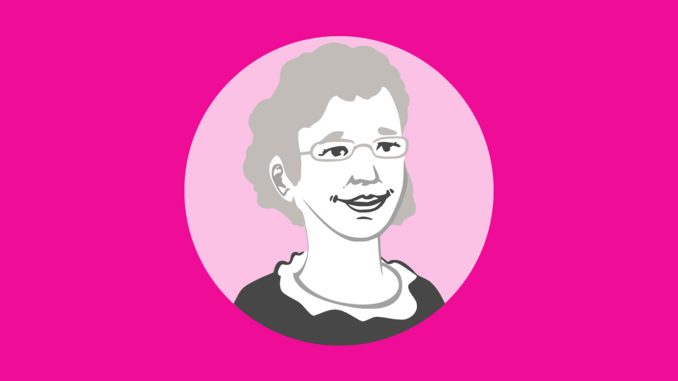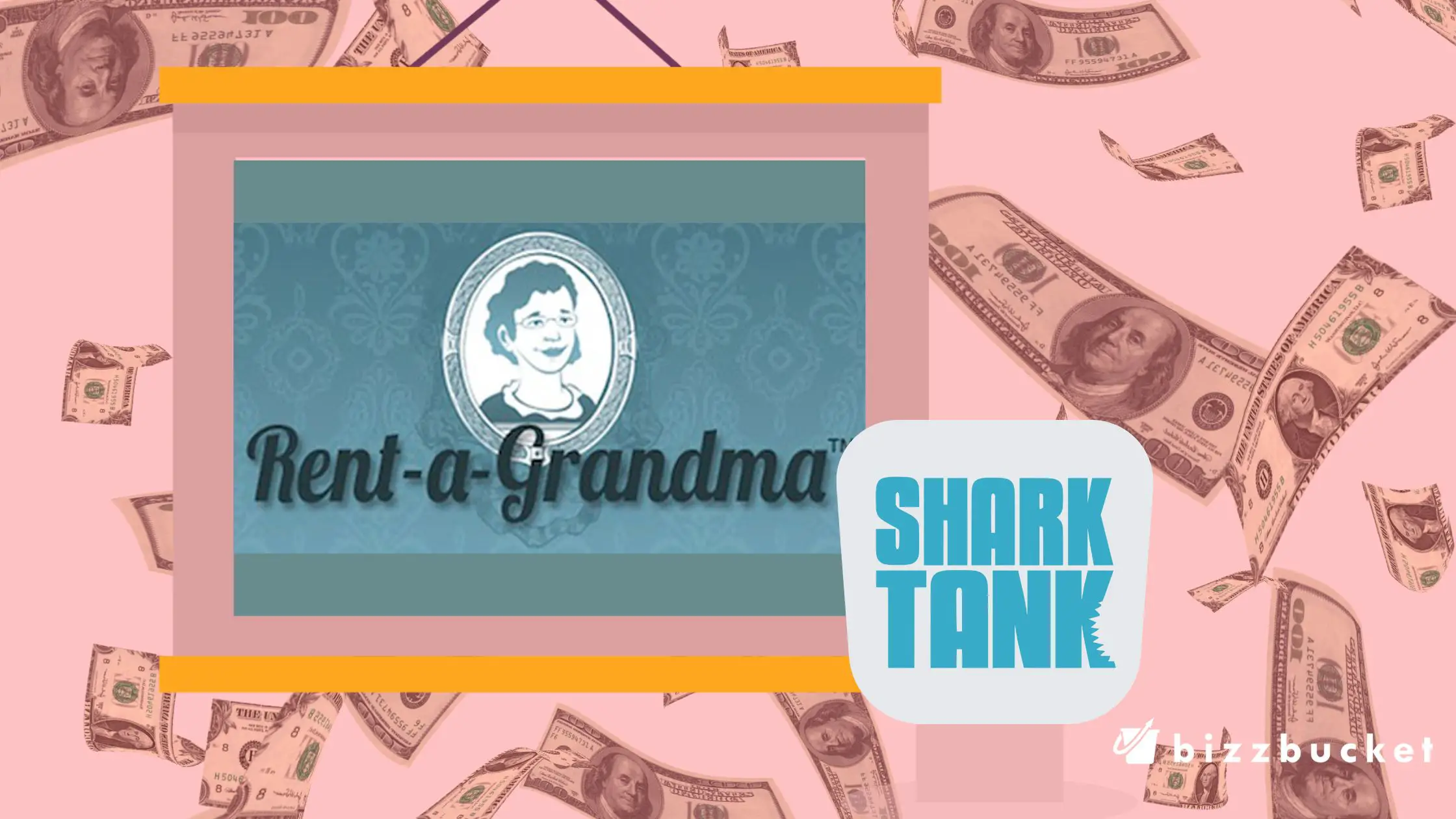
“Shark Tank” follows four to five investors, some of whom return season after season, looking for the right business to support financially. Unless the business has a ground-breaking idea, they rarely help it get off the ground. In most cases, the investors require a good track record; thus, their money allows the business owner to stay afloat, fulfill an existing order, expand to a new area, or finance research & development (R&D). Contestants have a few minutes to present their company and convince them without being dishonest. An on-screen handshake is not legally binding, and many deals fall through behind the scenes once lawyers, accountants, and sometimes Federal Trade Commission (FTC) get involved.

Revolutionary businesses are rare and usually reserved for Silicon Valley. Thus, most of the show’s success stories involved passionate entrepreneurs who improved an established product or service. Rent-A-Grandma falls into that category; Todd Colby Pliss, the founder, realized that a specific demographic, seniors, would be an ideal service provider for his business. He wanted to hire grandmothers as inexpensive caretakers, a role that was usually given to teenagers, students, neighbors, or temporary migrants. Unfortunately, when he presented the business opportunity, the “sharks” refused to bite, and he left without an investment.
However, his business didn’t suffer; the show’s popularity got people invested after the episode aired. Thus, Todd found new clients and, judging by his website, has a lot more than the initial 50 grandmothers in his employ. Here’s what happened to Rent-A-Grandma during and after “Shark Tank.”
The initial disinterest didn’t dissuade Todd
Todd didn’t get any money from the “Shark Tank” hosts when he debuted in the eighth episode of the third season. However, they praised his business acumen and celebrated his desire to involve an under-appreciated part of the population. After all, the community often neglects senior citizens, and Todd wanted to hire them to care for babies, children, and young teens. He felt that grandmothers would be better at nurturing without charging exorbitant fees, and that everyone involved would benefit. That would get him government support, too; some countries consider older people redundant if they cannot work.
Importantly, Rent-A-Grandma didn’t have to spend money on training; grandmothers could earn money from the job that they’ve done or still do for their loved ones. Additionally, the on-call and contractor nature of Todd’s business model allowed them to be available only when they felt capable. That benefited grandmothers more than financially; they found companionship, made friends on the job, and could take breaks.
Unfortunately, while they loved the business, it wasn’t far enough along, so the investors couldn’t make enough money in a reasonable period. Still, Todd didn’t lose heart, and restructured Rent-A-Grandma after 2012; the company is active and has expanded to include the other half of the older population, grandfathers.
The investors found his business model unsuitable
Todd gave an excellent presentation and even brought a grandmother to demonstrate the concept. He stated that he got the idea during his tutoring job, when he noticed a shortage of reliable childcare providers. His clients’ parents consistently complained about having to hire untrustworthy people unless they wanted to pay top dollar. While neighbors’ children or students were cheaper, they were often unavailable, inexperienced, overly accommodating, or distracted while on the clock.
In contrast, grandmothers had decades of parenting experience, lots of free time, and reasonable compensation demands. Todd drove the point home, saying, ‘Why hire a teenage nanny when you can have a grandma?’ Sadly, the “sharks” didn’t see enough current value to pay $150,000 for 20% of Rent-A-Grandma. Their biggest worry was Todd’s plan to focus on franchising, i.e., allowing others to start a business under Rent-A-Grandma’s name and business model for a fee. While that would let Todd’s company expand across the US, it could also weaken the profits.
Even worse, Robert Herjavec inquired about the grandmothers’ hourly wages, which were between $14 and $20. That was still serious cash since the minimum wage in Los Angeles, California, was $8 an hour between 2008 and 2014. However, franchising the business meant that the “sharks” would wait longer for a return on their money and start raking in cash, without hundreds of thousands of clients and contractors. Most importantly, owning one-fifth or one-fourth of the company meant that they wouldn’t have a decision-making percentage in the business. Therefore, the investors would, at best, be on the board of directors, and without veto power against what they considered poor decisions.
Kevin considered investing
Some of this TV show’s investors are willing to part with their money if they receive a nearly fail-safe deal. Kevin O’Leary and Mark Cuban saw potential in the business and asked the most questions after Robert, Barbara Corcoran, and Daymond John pulled out of investing. Mark eventually dropped out, wanting to avoid his name being attached to a business focused on seniors. Kevin was inquiring about the business model and the relatively low sales of only $25,000 the previous year. He liked that grandmothers sign a 90-day deal, reducing the inconvenience when one gets sick or, unfortunately, passes away.
After hearing the response, Kevin seemed to mull it over and was coming up with a “Mr. Wonderful deal” that he gives to desperate business owners. That usually indicated that he would want a 50%, if not 51%, i.e., the controlling share of the company, frequently without paying more than the asking price. He is also known to give money loans with incredibly high-interest rates, or request a percentage of the royalties to accelerate his money return. Unfortunately, Kevin couldn’t come up with a proposal that he was comfortable with, and Todd left the “Shark Tank” studio without money in his pocket.
Grandmas are a pretty big deal…So much so that people are actually HIRING grandmas to come to their home and help…
Posted by Montana Elder Law on Thursday, May 20, 2021
Todd shifted his business priorities
Todd listened to the advice and rarely mentioned franchising after 2012. Instead, he doubled down on his original business model with a twist, and to signify this change, he renamed his business from Rent-A-Grandma to Rent A Grandma. His approach changed because he realized that he was thinking too small. Instead of looking for grandmothers in the Los Angeles area, then signing them up for a three-month-long contract, Todd was inspired by websites such as Craigslist.com and Angie’s List, now known as Angi. Therefore, he hired a web developer, Nicholas “Nick” Howe, at nicholashowe.com, to build him a WordPress website at www.rentagrandma.com.
Using a website solved two primary problems. First, Todd could now refer grandmothers to his website and get them to sign up for a carer account instead of handling their details himself. Second, his content management system (CMS) made it easy for grandmothers to see client requests and bid on jobs. In contrast, clients could see and book grandmother’s profiles online without contacting Todd. Most importantly, the advanced search by country and postal code meant that people across the globe could use his service.
Some previous investigations into the business suggest that he got rid of charging grandmothers 15% of every job in favor of a one-time $25 flat service fee. That was an excellent solution for a global business; taking a cut from local transactions would be a tax-filing nightmare. Handling conversion rates and payment processing would be a challenge, too. Additionally, if things were too complicated or expensive, people outside the country could report that their search was unsuccessful, then pay a grandmother outside the platform.
Rent A Grandma expanded its focus
After participating in “Shark Tank,” Todd realized his caregiving idea was too niche. Therefore, he increased the area of expertise; people could hire a tutor, a nanny, a chef, or a pet sitter. Moreover, they may require a grandmother for companionship, as a personal assistant, party attendee, or caregiver to a fellow elder or a special needs child.
Similarly, Todd decided to bring attention to grandmothers’ skills and patience. Therefore, he started a Merchandise page, where the business sells t-shirts with their logo and those with a “Grandmas Matter!” print. Moreover, he sourced products such as chocolate chip cookies, brownies, and oatmeal raisin cookies. That helped grandmas whose baking skills exceeded their caregiving ability to make some money. Additionally, some people never tasted their grandma’s cuisine, allowing them to fulfill their lifelong dream.
Happy 4th to all! pic.twitter.com/sMZMMDAuiL
— The Grandma (@rentagrandmacom) July 4, 2019
People can request grandmothers on mobile devices
While the website is mobile-friendly, Rent A Grandma took things further by releasing an eponymous iOS application on the Apple App Store distribution platform. However, the application is unavailable in 2023, likely because it did not receive an iOS 16 update or the code had problems. Additionally, Todd created two social media profiles, on Twitter and Facebook, under the handle @rentagrandmacom, and still uses a business e-mail, rentagran[email protected], for non-tech-savvy users, including grandmothers.
Rent A Grandma has a sister company
Todd realized that other adjustments would allow him to extend his reach without developing brand-new technology or reinventing the wheel. Therefore, he started a second company, Rent a Grandpa, with an accompanying website, rentagrandpa.com. Although it has the same tagline, with ‘grandpa’ replacing ‘grandma,’ it offers activities that men do more often. Therefore, clients can request various handyman services such as dealing with furniture, electricity, painting, and lawn mowing. Moreover, they can hire grandfathers who are automotive specialists, which is useful whenever a mechanic’s help is unnecessary or pricey.
Rent a Grandpa, a new company with a rising list of services, lacks pages such as FAQ (Frequently Asked Questions), Merchandise, and About Us. However, it added a star-based rating system for registered grandpas and did not charge grandfathers fees. However, it likely takes a percentage from their wages, as Rent-a-Grandma did, and is thus limited to US territory.
Todd did not need the “sharks”
While Todd thought pumping cash into his business early on would solve all his problems, the advice he received on set was valid. He needed more time to iron out all the kinks in his business plan, primarily restricting the company to the US and not using a website and a mobile app to streamline hiring, paying, and reviewing grandmothers.
Todd accepted criticism and examined his competitors, then applied excellent ideas, such as making Rent a Grandma available globally, on mobile and desktop devices, and via the website, social media, and e-mail. After boosting the number of services, including letting grandmothers sell baked goods, he included grandfathers through his second company, Rent a Grandpa. That showed his business acumen; hence both companies are growing. Unfortunately, Todd may be stretched too thin; both websites need an SSL certificate, which boosts their security and instills trust, and the promoted Phone application is inaccessible. While those oversights hurt his brand’s reputation, they are relatively inexpensive and easy to fix, which will no doubt happen soon!
Leave a Reply